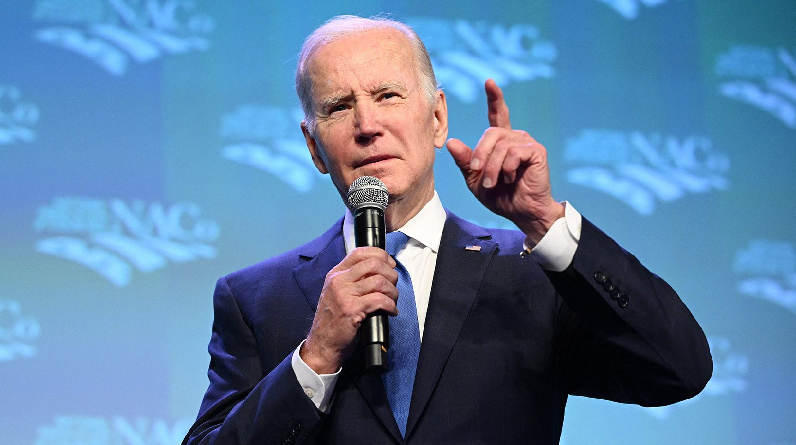WASHINGTON, DC – Everybody knows about the exceptional leadership and statesmanship the United States displayed during and after WWII. Instead of abusing its position as the world’s leading political, economic, and military power to punish the losers and demand reparations, the United States instead worked to create multilateral global-governance institutions that would ensure all nations had a voice.
The World Bank was tasked with funding postwar reconstruction and economic development under this new international order, while the General Agreement on Tariffs and Trade and its successor, the World Trade Organization, were tasked with providing a legal framework for international trade. The International Monetary Fund was established to safeguard international monetary systems, and the United Nations and the North Atlantic Treaty Organization provided frameworks for addressing international security threats.
This peaceful and prosperous world was kept together by a set of rules. There were no longer any global wars, and many developing nations were able to significantly raise the living standards of their citizens through the implementation of freer markets and a more integrated global trading system. Meanwhile, health, life expectancy, education, and poverty reduction all saw significant gains in the developed world.
Multilateralism was the driving force behind all of these accomplishments. Sure enough, the United States was and is the actual leader of this international system. But it’s not big enough to impose its will on the rest of the world; at less than 5% of the world’s population and 20% of global GDP, it can’t do that. To achieve its objectives and protect its interests abroad, it must instead rely on the help of its allies.
The Trump administration has rejected multilateralism on principle, despite its widespread use during the previous administration’s maintenance of peace and steady economic growth over the previous seven decades. To that end, it abandoned the Trans-Pacific Partnership, a US-centric free-trade pact that had been finalised by a dozen nations in the Pacific. It began a trade war with China by imposing large tariffs on Chinese imports without consulting the World Trade Organization. Further, it introduced protectionist measures on questionable national-security grounds and weakened the WTO’s dispute settlement body.
The Trump administration has only hurt itself by acting unilaterally on all of these issues. It would have been more effective if it had worked through the WTO to counter China as part of a multilateral effort.
The election of Joe Biden as US president raised hopes that the country would move away from Trump’s protectionist and isolationist policies. Instead of changing course, it seems to have stuck to the same course. Almost all of Trump’s tariffs on Chinese imports have been left in place, and the United States has also implemented a broad industrial policy to favourably treat certain domestic industries at the expense of those in other countries.
Russia’s invasion of Ukraine has heightened the importance of multilateralism and reaffirmed the Biden administration’s commitment to protecting the US economy from foreign rivals. These two drives are inherently incompatible. The US cannot guarantee the success of its backing for Ukraine and sanctions against Russia without the cooperation of its partners and allies, particularly the Europeans. However, in an effort to become economically independent, it has begun to discriminate against the exports of other countries.
The Biden administration has gotten funding for domestic semiconductor, battery, electric vehicle, and other manufacturing and consumer purchase initiatives. The federal government will subsidise new EV-battery production to the tune of $7 billion, and American consumers will receive a $7,500 tax credit for purchasing an EV that meets requirements for US-made content. The development of new semiconductor facilities in the United States has also been funded at $39 billion.
See Also: Five of the best new watches in 2023
The Biden administration is replicating the protectionist policies that the United States has long criticised when other countries adopt them by providing subsidies to domestic producers that give them an artificial cost advantage over their foreign counterparts. In addition, foreign companies are sending signals that they may locate their new factories in the United States to take advantage of the additional benefits. To put it simply, America’s allies and trading partners see these actions as harmful to their own interests and a violation of WTO rules. The United States, as things stand, could spark a new trade war.
Because of its obvious military significance, it is necessary to reasonably guarantee supplies of certain products and to prevent other countries from gaining access to certain technologies. However, cooperation with neutral countries through multilateral channels is necessary to prevent these items from falling into the wrong hands. Self-sufficiency in semiconductors is extremely unlikely for any country due to the high costs involved. Multilateralism is still necessary for achieving global goals on many other issues, such as environmental protection and public health.
For the majority of commodities, multilateral rules based on the principle of free trade remain the most effective means of regulating international flows. Even when legitimate national security concerns rule out a global approach, unilateralism is still not the way to go. Maintaining diplomatic support from allies and promoting US economic objectives would be much easier and cheaper with multilateral policies.
